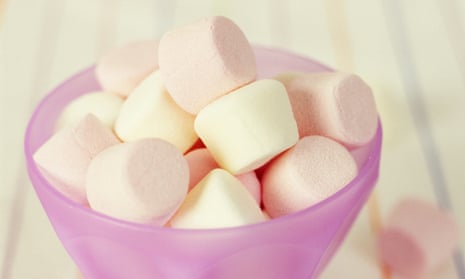In an infamous set of experiments performed in the 1960s, psychologist Walter Mischel sat pre-school kids at a table, one by one, and placed a sweet treat – a small marshmallow, a biscuit, or a pretzel – in front of them. Each of the young participants was told that they would be left alone in the room, and that if they could resist the temptation to eat the sweet on the table in front of them, they would be rewarded with more sweets when the experimenter returned.
The so-called Marshmallow Test was designed to test self-control and delayed gratification. Mischel and his colleagues tracked some of the children as they grew up, and then claimed that those who managed to hold out for longer in the original experiment performed better at school, and went on to become more successful in life, than those who couldn’t resist the temptation to eat the treat before the researcher returned to the room.
The ability to exercise willpower and inhibit impulsive behaviours is considered to be a core feature of the brain’s executive functions, a set of neural processes - including attention, reasoning, and working memory - which regulate our behaviour and thoughts, and enable us to adapt them according to the changing demands of the task at hand.
Executive function is a rather vague term, and we still don’t know much about its underlying bran mechanisms, or about how different components of this control system are related to one another. New research shows that self-control and memory share, and compete with each other for, the same brain mechanisms, such that exercising willpower saps these common resources and impairs our ability to encode memories.
In the lab, self-control – or response inhibition, as neuroscientists call it – is often tested with the ‘Go/ no–go’ procedure. This typically involves showing participants a stream of sensory cues, and to respond to most of them by performing a simple action, such as pressing a button. But a small subset of the cues are slightly different from the rest, and when these appear, they are supposed to withhold their usual response and refrain from pressing the button. The number of times a participant incorrectly presses the button on these “no-go” trials is thus taken as a measure of their self-control.
Earlier this year, Yu-Chin Chiu and Tobias Egner of Duke University in North Carolina reported that response inhibition impairs memory encoding. They asked volunteers to perform a ‘Go/ no–go’ task, using photographs of faces as cues, and then tested their ability to recognise the faces used in the experiment. They found that the participants’ memory for the faces they saw during the “no–go” trials was far worse than for the rest, and therefore hypothesized that response inhibition competes with memory encoding for common attentional resources.
To test this idea, Chiu and Egner repeated the experiment using functional magnetic resonance imaging (fMRI). They recruited 24 additional participants, and asked them to perform a ‘Go/ no–go’ task while having their brains scanned. Once again, they used photographs of faces as visual cues, and tested the participants’ ability to recognise them shortly afterwards.
This confirmed their earlier findings that the participants’ memory was worse for the ‘no–go’ than for ‘Go’ faces. The scans revealed that responding to a cue and inhibiting a response produced overlapping activation patterns in brain regions within the right frontal and parietal lobes, a network that has previously been implicated in response inhibition.
Crucially, ‘no–go’ trials produced greater activation of this network than ‘Go’ trials, and activity in one specific brain region (the ventrolateral prefrontal cortex) predicted the strength of the participants’ memory, such that greater the observed network activation, the more likely the participants were to forget that face later on. At the same time, the researchers also noticed a significant reduction of activity in brain regions involved in visual processing and memory during ‘no–go’ trials compared to ‘Go’ trials.
These findings strongly suggest that self-control and memory encoding share common brain structures and mechanisms, and compete with each other for them, and so support Chiu and Egner’s “inhibition-induced forgetting” hypothesis. These shared neural resources are limited, and so response inhibition quickly saps them, making fewer available for the encoding of memories. We already know that paying close attention to something can make us oblivious to other things that would normally be glaringly obvious, and future research will likely reveal more about how attention, memory, and self-control are linked to each other, and to other components of the brain’s executive function system.
References
Chiu, Y. -C. & Egner, T. (2015). Inhibition-Induced Forgetting Results from Resource Competition between Response Inhibition and Memory Encoding Processes. J. Neurosci., 35: 11936-45. [Abstract]
Chiu, Y. -C. & Egner, T. (2015). Inhibition-Induced Forgetting: When More Control Leads to Less Memory. Psych. Sci., 26: 27-38. [PDF]
Mischel, W. & Ebbesen, E. B. (1970). Attention in delay of gratification. J. Pers. Soc. Psychol., 16: 329-37. [PDF]

Comments (…)
Sign in or create your Guardian account to join the discussion